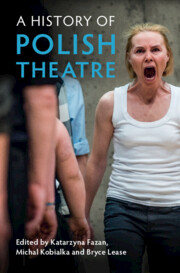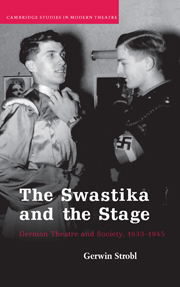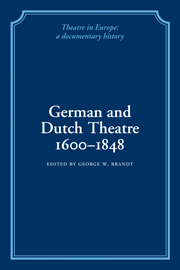A History of Polish Theatre
Poland is celebrated internationally for its rich and varied performance traditions and theatre histories. This groundbreaking volume is the first in English to engage with these topics across an ambitious scope, incorporating Staropolska, the Polish-Lithuanian Commonwealth, the Enlightenment and Romanticism within its broad ambit. The book also discusses theatre cultures under socialism, the emergence of canonical practitioners and training methods, the development of dramaturgical forms and stage aesthetics and the political transformations attending the ends of the First and Second World Wars. Subjects of far-reaching transnational attention such as Jerzy Grotowski and Tadeusz Kantor are contextualised alongside theatre makers and practices that have gone largely unrecognized by international readers, while the participation of ethnic minorities in the production of national culture is given fresh attention. The essays in this collection theorise broad historical trends, movements, and case studies that extend the discursive limits of Polish national and cultural identity.
- Applies an original historiographical approach and methodology to the study of Polish theatre
- Offers unprecedented insight into Polish theatre history, bridging a crucial gap in English-language international theatre scholarship
- Provides greater context for understanding and interpreting Polish theatre and culture by theorising broad historical trends, movements and case studies
Awards
Honorable Mention, 2024 The Anna M. Cienciala Award, Polish Institute of Arts and Sciences of America
Product details
April 2022Hardback
9781108476492
444 pages
235 × 157 × 25 mm
0.82kg
Available
Table of Contents
- 1. Where is Poland? What is Poland?
- 1.1 The ambiguous republic Krzysztof Zajas
- 1.2 The global archive and the periphery Dorota Sajewska
- 2. Staropolski (old polish) theatre
- 2.1 Stages and audiences of Poland between the middle ages and 1765 Agnieszka Marszałek
- 2.2 Theatres of identity Mirosław Kocur
- 3. The public stage and the enlightenment
- 3.1 Poniatowski's national theatre: The idea and institution of enlightenment Piotr Olkusz
- 3.2 The birth and death of the eighteenth-century myth of the polish public stage Dobrochna Ratajczakowa
- 4.1 Romanticism Juliusz Słowacki, Zygmunt Krasiński, Cyprian Kamil Norwid Włodzimierz Szturc
- 4.2 Adam Mickiewicz: Between the province and the cosmos Zbigniew Majchrowski
- 5. Mapping theatre (I):
- 5.1 Jewish theatre in Poland Alyssa Quint and Michael Steinlauf
- 5.2 Polish theatre in Vilnius Martynas Petrikas
- 6. Mapping theatre (II)
- 6.1 German theatre in Poland until 1989 Małgorzata Leyko
- 6.2 Shakespeare and/in polish theatrical cultures Aleksandra Sakowska
- 7. Modernist theatre
- 7.1 New ideas of theatre and their materialization Katarzyna Fazan
- 7.2 Stage practices at the turn of the twentieth century Dorota Jarząbek-Wasyl
- 8. Avant-Gardes
- 8.1 Inter-reality: Between matter and memory in the polish Avant-Garde Agnieszka Jelewska
- 8.2 Avant-Garde sound theatre Anna R. Burzyńska
- 9. Theatre during the second world war Justyna Biernat and Karolina Czerska
- 10. Political theatres
- 10.1 The political subject Joanna Krakowska
- 10.2 The politics of non-political theatre Grzegorz Niziołek
- 11. Ritual theatre
- 11.1 Theatre's reorigination in ritual Kris Salata
- 11.2 Ritual and performance legacies Tadeusz Kornaś
- 12. Actors and animants
- 12.1 Actors and acting in the nineteenth century Beth Holmgren
- 12.2 The actor's craft in Poland (1918–2018) Beata Guczalska
- 12.3 Puppet theatre Marek Waszkiel
- 13. Writing and dramaturgy
- 13.1 Polish playwrights since 1900 Ewa Guderian-Czaplińska
- 13.2 Theatre without playwrights Marcin Kościelniak
- 14. Theatre ontologies
- 14.1 No progress, no precursor Krystyna Duniec
- 14.2 Homosocial relations and feminist transgressions: Theatre and patriarchy Agata Adamiecka-Sitek.







